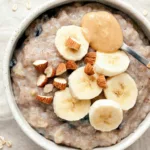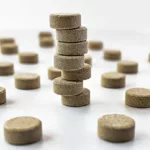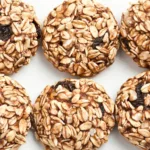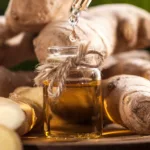GERD-Safe High Protein Meals – A Tasty, Balanced Approach
Looking for GERD-safe, high-protein meals that don’t trigger heartburn? Dive into our guide for tasty ideas and tips to enjoy protein-packed dishes while keeping your acid reflux in check.
Let’s be real: living with GERD (Gastroesophageal Reflux Disease) can feel like walking on eggshells when it comes to food choices. One wrong move, and bam – that familiar, fiery sensation in your chest is back. But don’t stress. Eating a high-protein diet that’s GERD-friendly is totally doable, and it doesn’t mean sacrificing flavor. In this guide, we’re diving into the world of GERD-safe high-protein meals that are not only good for your stomach but are actually enjoyable to eat. Let’s jump in!

What Makes a Meal GERD-Friendly?
Before we talk recipes, let’s get one thing straight: GERD-safe meals are all about balance. You want foods that are gentle on the esophagus, low in acid, and free from common triggers like spicy seasonings, fried coatings, or fatty cuts of meat. Protein is great for GERD because it helps keep stomach acid in check, but not all proteins are created equal. For example, a greasy cheeseburger? Nope, that’s a no-go. But grilled chicken or a lean tofu stir-fry? Now we’re talking.

GERD-Safe Protein Sources
Here’s a little cheat sheet of GERD-friendly protein options to keep on your radar:
- Lean Poultry: Chicken and turkey (skinless) are excellent. Bake, grill, or poach them for the best results.
- Fish: Stick to non-fatty options like cod, tilapia, or mahi-mahi. Skip the spicy rubs and heavy sauces.
- Egg Whites: These are a fantastic low-fat protein source that won’t upset your stomach.
- Tofu and Tempeh: Great plant-based choices for a protein boost. Marinate with mild flavors to jazz them up.
- Legumes: Lentils, chickpeas, and black beans are solid picks – just watch out for gas-inducing ingredients if you’re sensitive.
- Low-Fat Dairy: Cottage cheese, Greek yogurt, and ricotta are GERD-safe and high in protein.

High-Protein GERD-Friendly Meal Ideas
Now for the fun part: meal inspiration! Here are some drool-worthy ideas to keep your protein intake high and your heartburn at bay.
1. Grilled Chicken and Quinoa Bowl
This one’s a classic. Grill some seasoned chicken breast (use a sprinkle of herbs and a touch of olive oil – skip the hot spices) and serve it over a bowl of fluffy quinoa. Add steamed veggies like zucchini, carrots, and broccoli, and you’ve got yourself a well-rounded, GERD-safe dish.
2. Baked Salmon with Dill and Rice
Salmon is rich in healthy fats and protein, but make sure to go light on the seasoning. A little fresh dill, lemon zest (not juice – it’s too acidic), and olive oil work wonders. Serve with plain brown rice and steamed asparagus for a balanced meal.
3. Egg White Veggie Scramble
For a protein-packed breakfast, whip up an egg white scramble with spinach, mushrooms, and bell peppers (skip onions if they’re a trigger for you). Pair with a slice of whole-grain toast or a small side of roasted sweet potatoes.
4. Lentil and Sweet Potato Soup
This hearty, plant-based soup is perfect for cooler days. Lentils provide a great protein punch, while sweet potatoes add creaminess without needing heavy cream. Use a low-sodium broth and mild spices like turmeric or cumin.

Tips for Making GERD-Safe High-Protein Meals
1. Go Easy on the Seasoning
Spices like black pepper, chili powder, and garlic can be rough on a GERD-sensitive stomach. Instead, opt for fresh herbs like basil, parsley, or cilantro for flavor.
2. Keep It Low-Fat
High-fat foods can relax the lower esophageal sphincter (LES), which is basically the gatekeeper that keeps stomach acid where it belongs. Stick to lean proteins and cooking methods like baking, grilling, or steaming.
3. Mind Your Portions
Large meals can put extra pressure on your LES, increasing the risk of reflux. Keep your portions small and eat slowly to give your stomach time to digest properly.
4. Avoid Trigger Sides
Pair your protein with GERD-friendly sides like plain rice, steamed vegetables, or roasted sweet potatoes. Avoid acidic, spicy, or fatty accompaniments.
Conclusion
GERD-safe high-protein meals don’t have to be boring or bland. With a little creativity and the right ingredients, you can enjoy flavorful dishes that nourish your body without causing reflux flare-ups. Whether you’re grilling chicken, whipping up a tofu stir-fry, or indulging in a creamy lentil soup, the possibilities are endless. Just remember: balance is key. And when in doubt, keep it simple. Your stomach will thank you!
Appendices
FAQs
- Can I eat red meat with GERD? Lean cuts like sirloin or tenderloin in moderation may be okay, but avoid fatty cuts like ribs or burgers.
- Is Greek yogurt GERD-safe? Yes, as long as it’s low-fat and plain.
- Can I drink protein shakes with GERD? Yes, but avoid acidic ingredients like citrus or chocolate in your shakes.
- Are beans safe for GERD? Most beans are fine, but avoid gas-inducing seasonings.
- Can I use hot sauce? Unfortunately, spicy sauces are a no-go for GERD.
- What about nuts? Stick to low-fat options like almonds in small portions.
- Is soy sauce GERD-friendly? Go easy, as it can be salty and irritating in large amounts.
- What snacks are GERD-safe? Hard-boiled eggs, cottage cheese, or a banana are great options.
- Can I eat fried chicken? Fried foods are a GERD trigger, so it’s best to skip them.
- What drinks pair well with GERD meals? Stick to water, herbal teas, or non-acidic beverages.
References
- American Gastroenterological Association (2024). GERD Diet Guidelines. Read More
- Smith, J., & Lee, M. (2023). Managing Acid Reflux with Diet. Nutrition Today, 50(3), 45-52.
- Mayo Clinic (2024). Healthy Eating for GERD. Read Article
Disclaimer: The information provided here is for general educational purposes only and should not replace medical advice. Always consult with a healthcare professional for personalized recommendations.

Camellia Wulansari is a dedicated health writer specializing in digestive disorders, contributing valuable insights and information to the health and wellness community. With a passion for promoting well-being through knowledge, Camellia serves as a reliable source of expert content on healthusias.com.














